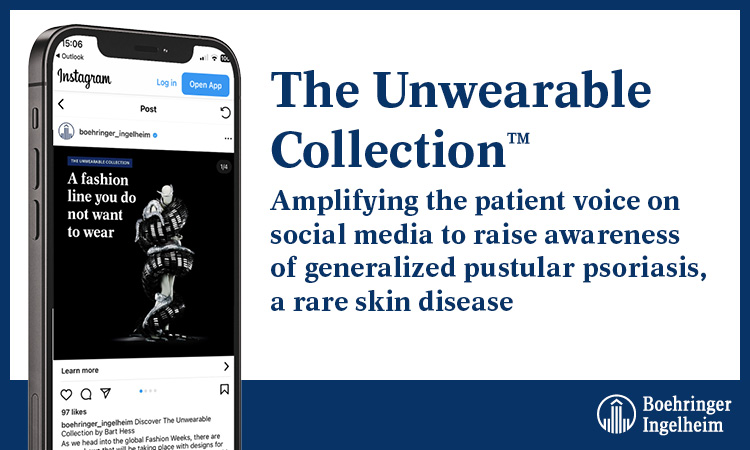Disease Awareness: Public
With grateful thanks to our sponsor

Overactive bladder (OAB) affects >2 million people over 40 years old in the UK. We devised a campaign to challenge acceptance of OAB symptoms as part of ageing, help those undiagnosed to recognise their symptoms and ultimately embolden individuals to seek medical advice.
We needed to boost recognition of OAB symptoms and reveal the everyday adaptions people make to cope with the condition, empowering those with OAB to seek help. Tactics executed to amplify our messaging included the development of a Hero Film, partnering with three influencers alongside Google (search and display), Facebook, ALL4 pause and ‘out of home’ advertising.
Judges Comments
A fantastic entry and very creative campaign, employing humour and digital technology to create awareness of OAB. There was clear strategy and objective to drive awareness in a disease area that may not get the same coverage as more acute conditions. This was excellent conception, planning, development and implementation with a website that was both clever and easy to follow and a video campaign that was particularly powerful, resulting in great cut-through and engagement. Compelling effectiveness stats demonstrated how it shaped the market, i.e., went beyond reach/engagement KPIs, and we enjoyed seeing the clearly measurable, patient-focused impact.
Overall, we loved this meaningful, thought-provoking campaign that was creatively executed in an engaging, memorable way; the humour and presentation was a major part of the success. Based on strong insights that were audience- led and data driven, this campaign generated amazing results and true value – with a clear creative hook!
Emma Harris, DPO & Digital Lead – UK & IE, Ferring Pharmaceuticals
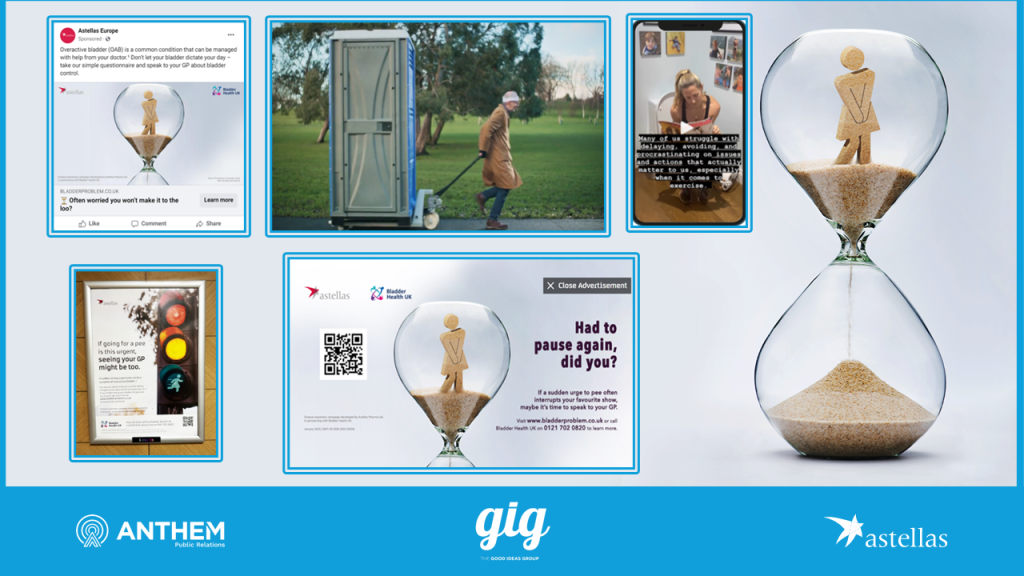
Young-onset Parkinson’s disease (YOPD) is a rare disease that is under-represented and often misunderstood. When one thinks of Parkinson’s, they think of old age, shaky limbs and memory problems, not of someone in their 20s, 30s or 40s, who is in the prime of their lives. Spotlight YOPD, a small UK-based charity, wanted to challenge misconceptions via a bold omnichannel campaign.
At the heart of the campaign is a film featuring an older person, explaining their experiences so far with Parkinson’s. As we hear the story, it is revealed that our narrator is not talking about themselves but, in fact, their child.
Short, simple and powerful storytelling where misdirection is key: Parkinson’s is not just an old person’s disease.
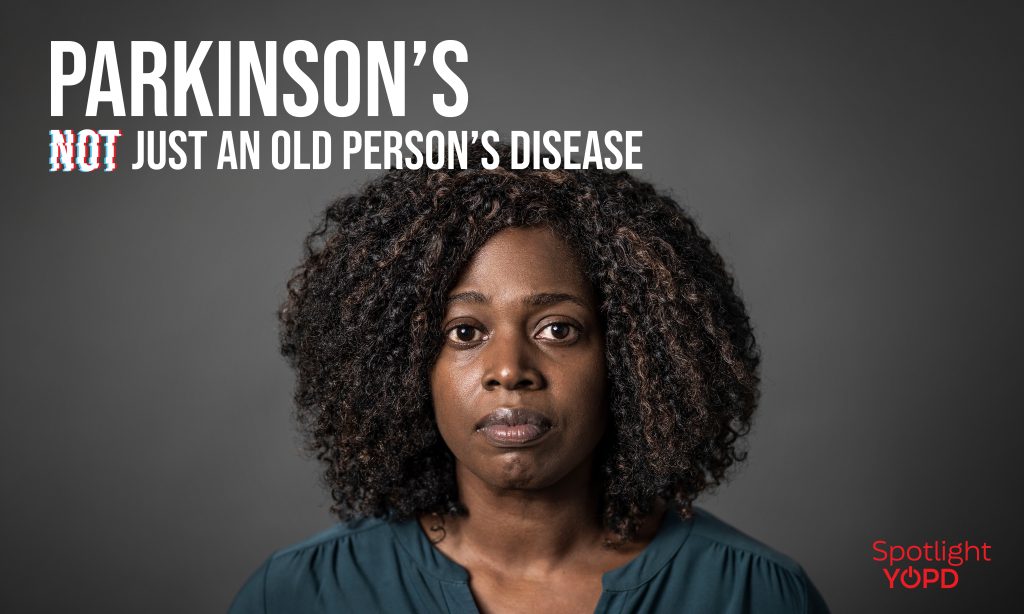
Early diagnoses of prostate cancer can lead to potentially improved patient outcomes. Research showed that while engaging men with health messages can be difficult, they are likely to be engaged when leveraging the topic of sport.
Timed when football was of global importance, AstraZeneca and MSD launched ‘Never Miss’, a global prostate cancer awareness campaign.
The primarily digital campaign included an engaging multi-language website and a global, paid social media campaign using unbranded Instagram/Facebook channels to target key audiences (men 45+, their millennial children and partners) to drive website traffic. KPIs were surpassed, achieving 2.4m website clicks in 20 days.
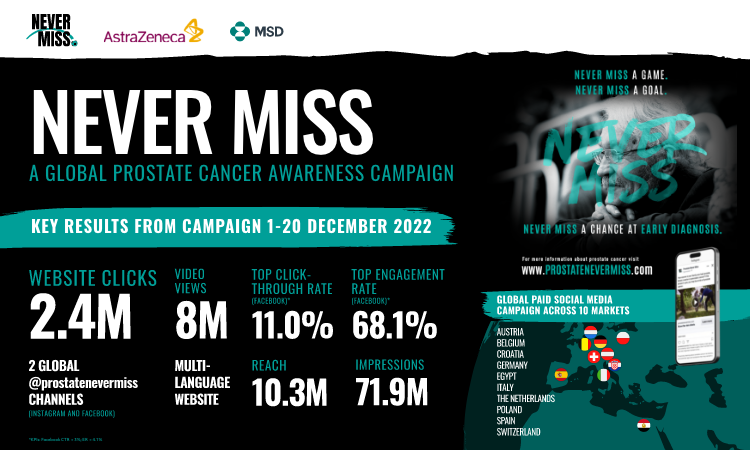
Task: Generate conversations during Acne Awareness Month
Deliverable: A multi-channel social media campaign
Timeline: 30 days
Those affected by acne are searching for answers – but how could they possibly find the truth in a highly-saturated digital space where evidence is deprioritised in favour of views?
Introducing, Forget the Fake (FTF): A visually intriguing campaign with a chatty tonality. Through rejecting and challenging misinformation, FTF debunked common misconceptions and empowered viewers to reach out to their doctor for factual advice. Creative, innovative and (most importantly) disruptive – FTF achieved above-target results across platforms, demonstrating our impactful message successfully resonated with the public.
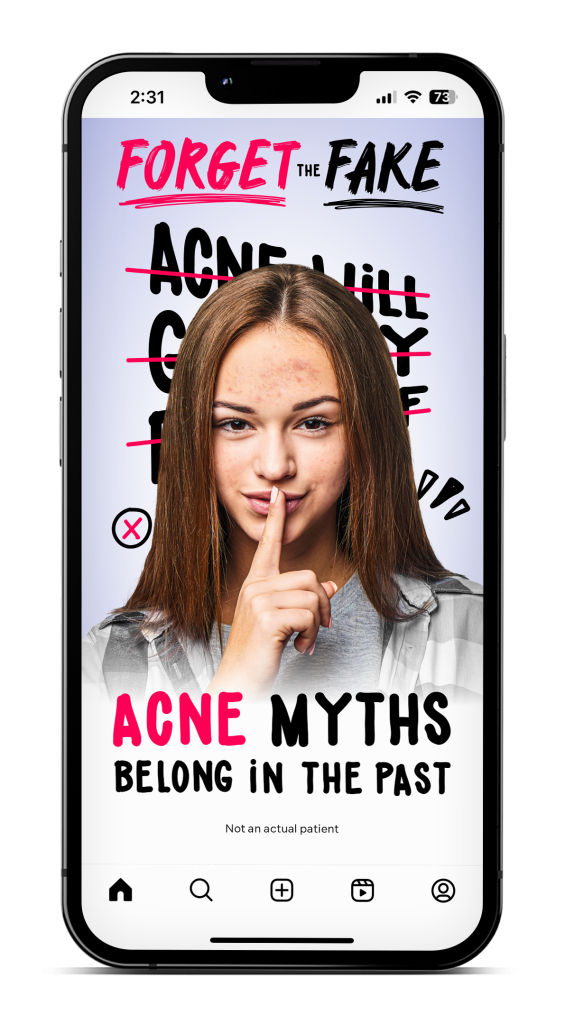
The Unwearable Collection™ social media campaign was designed to raise visibility and differentiate generalised pustular psoriasis (GPP) as a rare and distinct disease. We used an innovative paid strategy, targeting people interested in fashion and design to raise awareness and education amongst the general public, alongside core patient and healthcare professional audience groups.
As GPP is so rare, it can be hard to effectively reach the right people. Going broad by using fashion and design-related targeting enabled us to reach mass audiences and filter the people who were engaging with the content to further educate.
